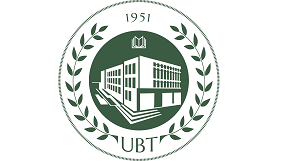VALDET GJINOVCI, ALUSH MUSAJ,KUJTIM UKA, FESTIM REXHEPI
1Univeristy of Mitrovica “Isa Boletini”, Faculty of Food Technology and Engineering, Department of Food Technology / “Parku Industrial” Street, N.N., 40000, Mitrovica, Republic of Kosovo
2Food and Veterinary Agency of Kosovo, Directorate of Public Health / Industrial Zone, N.N., 10000, Prishtina, Republic of Kosovo
*Correspondingauthor; E-mail: valdetgjinovci@gmail.com
Abstract
Kosovo is facing serious environmental issues. There are initiatives to improve the situation but the main concerns are from (i) industrial emissions and immissions into soil, air, surface and groundwater, (ii) the discharge of untreated wastewater and sewage into the rivers and streams. During the ex-Yugoslavia era, the expansion of heavy industries in Kosovo was a major focus for economic development. It was not common to take environmental aspects into consideration because it seemed incompatible with economic output. Ore mining concentrated upon chromium, nickel, copper, lead and zinc. Over the past two decades economic activity has continued with these extraction industries for the production of raw materials and semi-finished products (e.g. lead, coal, zinc and some textiles). The energy sector is also a source of pollution in Kosovo mainly impacting the air with CO2, SO2 and dust and especially for the neighbouring areas of Obiliq where the greater part of the electricity is generated from lignite-powered thermal plants. However, the environmental impacts from the current level of agricultural activity are considered low.
Keywords: Organo-pollutant parameters, Heavy Metals, Screening analyses, Soil pollutants

